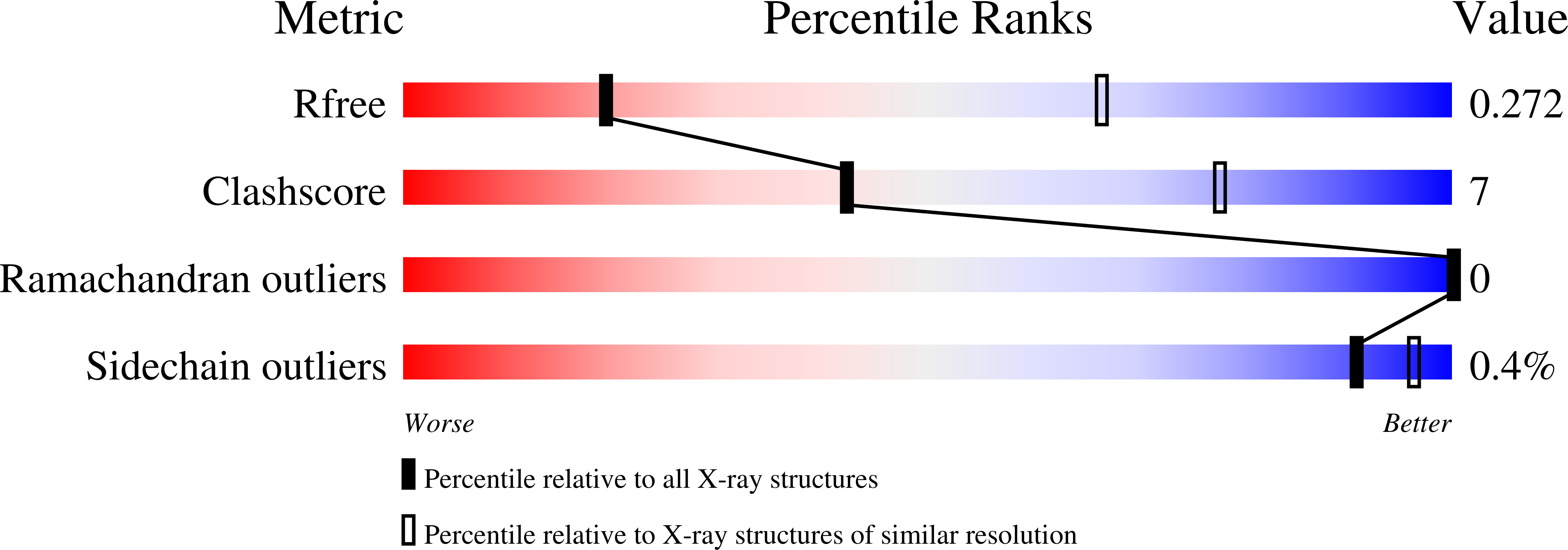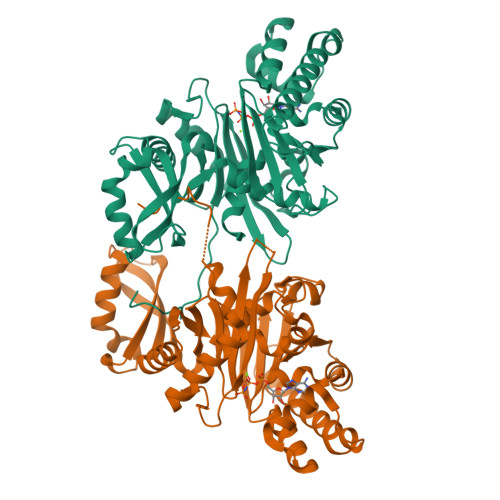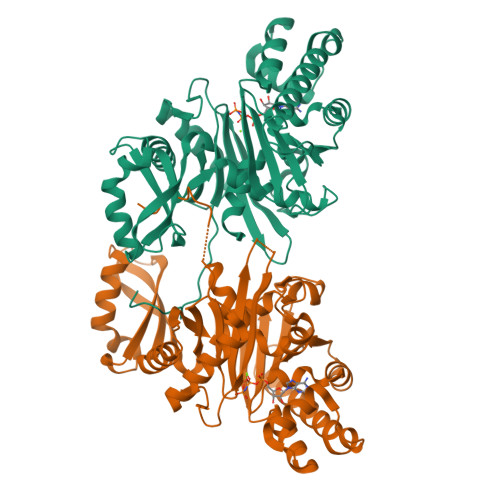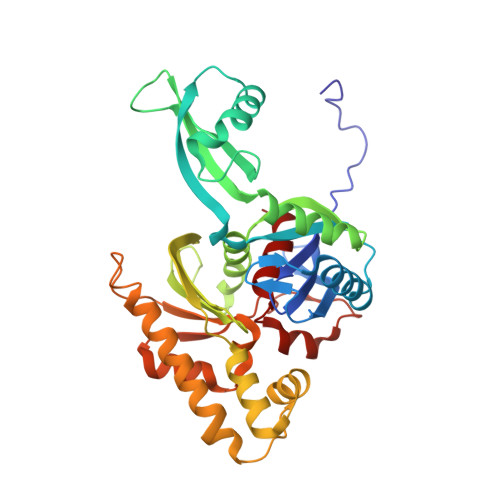PilN Binding Modulates the Structure and Binding Partners of the Pseudomonas aeruginosa Type IVa Pilus Protein PilM.
McCallum, M., Tammam, S., Little, D.J., Robinson, H., Koo, J., Shah, M., Calmettes, C., Moraes, T.F., Burrows, L.L., Howell, P.L.(2016) J Biological Chem 291: 11003-11015
- PubMed: 27022027
- DOI: https://doi.org/10.1074/jbc.M116.718353
- Primary Citation of Related Structures:
5EOU, 5EOX, 5EOY, 5EQ6 - PubMed Abstract:
Pseudomonas aeruginosa is an opportunistic bacterial pathogen that expresses type IVa pili. The pilus assembly system, which promotes surface-associated twitching motility and virulence, is composed of inner and outer membrane subcomplexes, connected by an alignment subcomplex composed of PilMNOP. PilM binds to the N terminus of PilN, and we hypothesize that this interaction causes functionally significant structural changes in PilM. To characterize this interaction, we determined the crystal structures of PilM and a PilM chimera where PilM was fused to the first 12 residues of PilN (PilM·PilN(1-12)). Structural analysis, multiangle light scattering coupled with size exclusion chromatography, and bacterial two-hybrid data revealed that PilM forms dimers mediated by the binding of a novel conserved motif in the N terminus of PilM, and binding PilN abrogates this binding interface, resulting in PilM monomerization. Structural comparison of PilM with PilM·PilN(1-12) revealed that upon PilN binding, there is a large domain closure in PilM that alters its ATP binding site. Using biolayer interferometry, we found that the association rate of PilN with PilM is higher in the presence of ATP compared with ADP. Bacterial two-hybrid data suggested the connectivity of the cytoplasmic and inner membrane components of the type IVa pilus machinery in P. aeruginosa, with PilM binding to PilB, PilT, and PilC in addition to PilN. Pull-down experiments demonstrated direct interactions of PilM with PilB and PilT. We propose a working model in which dynamic binding of PilN facilitates functionally relevant structural changes in PilM.
Organizational Affiliation:
From the Department of Biochemistry, University of Toronto, Toronto, Ontario M5S 1A8, Canada, the Program in Molecular Structure and Function, Peter Gilgan Centre for Research and Learning, Hospital for Sick Children, Toronto, Ontario M5G 0A4, Canada.




















